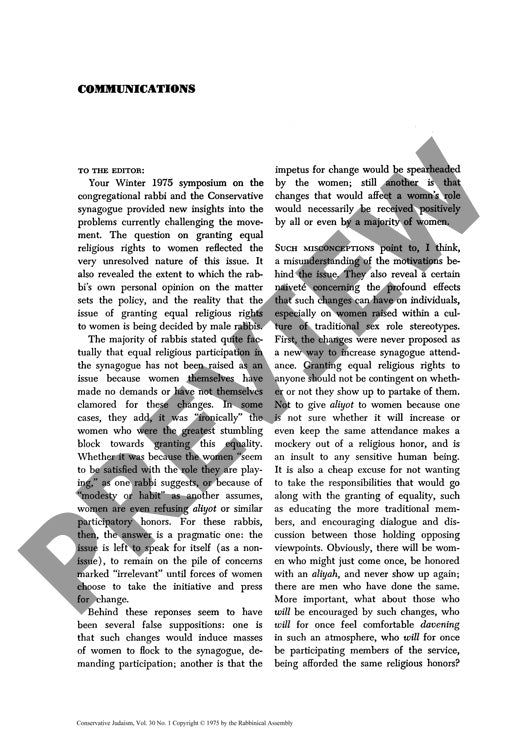Communications
Couldn't load pickup availability
Male Conservative rabbis in 1975 justified denying women equal religious rights by claiming women themselves resisted change - a justification that masked deeper institutional barriers to gender equality in Judaism. When surveyed about congregational policies, these rabbis reported that women rarely demanded expanded roles and often actively opposed modifications to traditional practice. Through textual analysis of rabbinical responses and historical parallels of resistance to social change, this research exposes several flawed assumptions: that equality would dramatically increase female synagogue attendance, that women would universally embrace new religious roles, and that lack of explicit demands indicated genuine satisfaction with inequality. The methodology examines both stated rationales and unstated biases in the symposium responses, revealing how rabbis adopted pragmatic deferrals of change or invoked Orthodox tradition to maintain exclusionary practices. Women's apparent acceptance of limited religious roles reflected psychological investment in familiar traditions rather than authentic preference - a pattern seen in other contexts of institutional discrimination. True religious equality requires providing choice regardless of utilization rates, particularly given Conservative Judaism's foundational commitment to evolutionary change. This analysis demonstrates how traditionalist resistance to women's religious equality fundamentally contradicted Conservative Judaism's adaptive principles.

More Information
-
Physical Description
-
Publication Information
Published 1975
ISBN
-
Publication Credits

